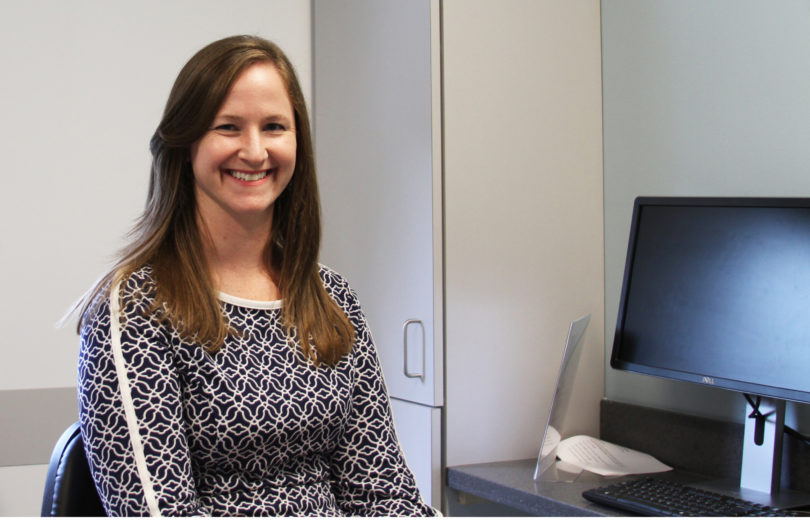Stressful life experiences, whether it is poverty, exposure to trauma or other adversities, can get under the skin and influence health. Though the field of social determinants of health is relatively new, abundant evidence now links exposure to social and environmental stress with physical health in adulthood.
A new University of Georgia research project funded by the National Institutes of Health seeks to determine whether stressful life experiences have a more immediate effect on children’s health. The $2.3 million Director’s New Innovator Award from the NIH Common Fund’s High-Risk, High-Reward Research program will implement a new approach to examine how stress exposure is linked to children’s antibody response to vaccination.
Because the means of analysis used to measure health in adults—blood pressure, inflammation, pre-disease markers, cardio-metabolic function—often show little variability in children, the research team adopted a paradigm used primarily in adult samples—to look at how children’s immune systems respond to vaccination. As a marker of immune function with clinical relevance, the approach is designed to establish a better understanding of the nearer term effects of stress on the health of children.
“Fortunately, most kids are pretty healthy, but one challenge this raises is that it’s difficult to study how social experiences are linked to physical health during childhood,” said Katherine Ehrlich, assistant professor in the Franklin College of Arts and Sciences department of psychology and principal investigator on the project. “This paradigm will allow us to evaluate the extent to which children’s social worlds ‘get under the skin’ and influence their bodies’ response to vaccination.”
In the first study of the project, the research team will administer the influenza vaccine to 150 youths from the community. Across two visits, participants will undergo a blood draw, assessments of chronic and acute stress, and will receive the standard flu vaccine. Participants will return for a second lab visit 28 days later, where they will undergo a blood draw to examine antibody levels.
“We will look at their baseline antibodies before they get the vaccine, and then a month later we’ll look at how many antibodies they have produced,” Ehrlich said. “Most kids will have a robust antibody response because they have a healthy immune system, but there are indications that some of the stressors we’re studying—low socio-economic status, social isolation, chronic family conflict—might dampen their body’s response to the vaccine, even though they’re otherwise healthy.”
Ehrlich noted that the project’s plans came together relatively quickly because of unique resources on UGA’s campus. For example, all data collection for the study, including vaccinations, will take place at the Clinical and Translational Research Unit on the UGA Health Sciences Campus. The facility is equipped with patient rooms and a nursing staff, both of which are critical for data collection. In addition, the project relies on two centers on campus—the Center for Family Research (directed by Distinguished Research Professor of Human Development and Family Science Gene Brody) and the Center for Vaccines and Immunology (led by GRA EminentScholar of Infectious Disease Ted Ross).
“Our research is interdisciplinary, and we’re grateful to these centers for helping us carry out complex studies that lie at the intersection of social and biomedical science,” Ehrlich said.
Established in 2007, the NIH Common Fund New Innovator Award supports unusually innovative research from early career investigators who are within 10 years of their final degree or clinical residency and have not yet received a research project grant or equivalent NIH grant. The program catalyzes scientific discovery by supporting exciting, high-risk research proposals that may struggle in the traditional peer review process despite their transformative potential.





